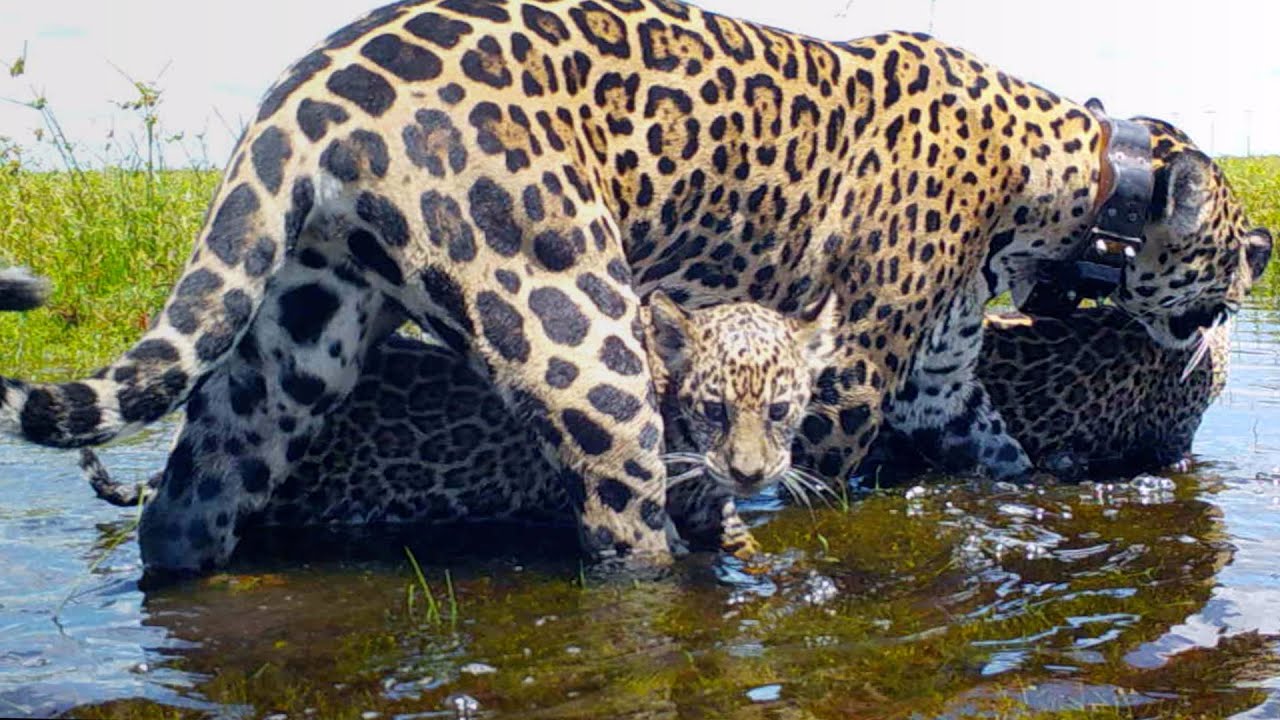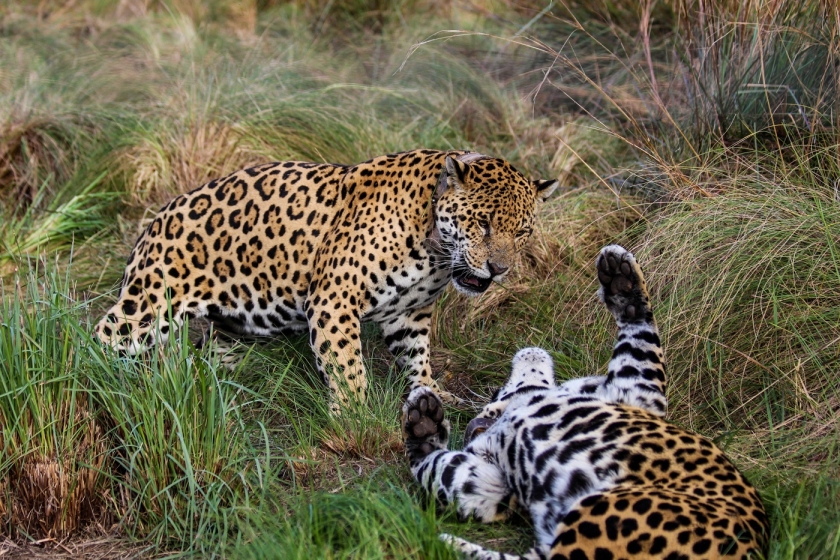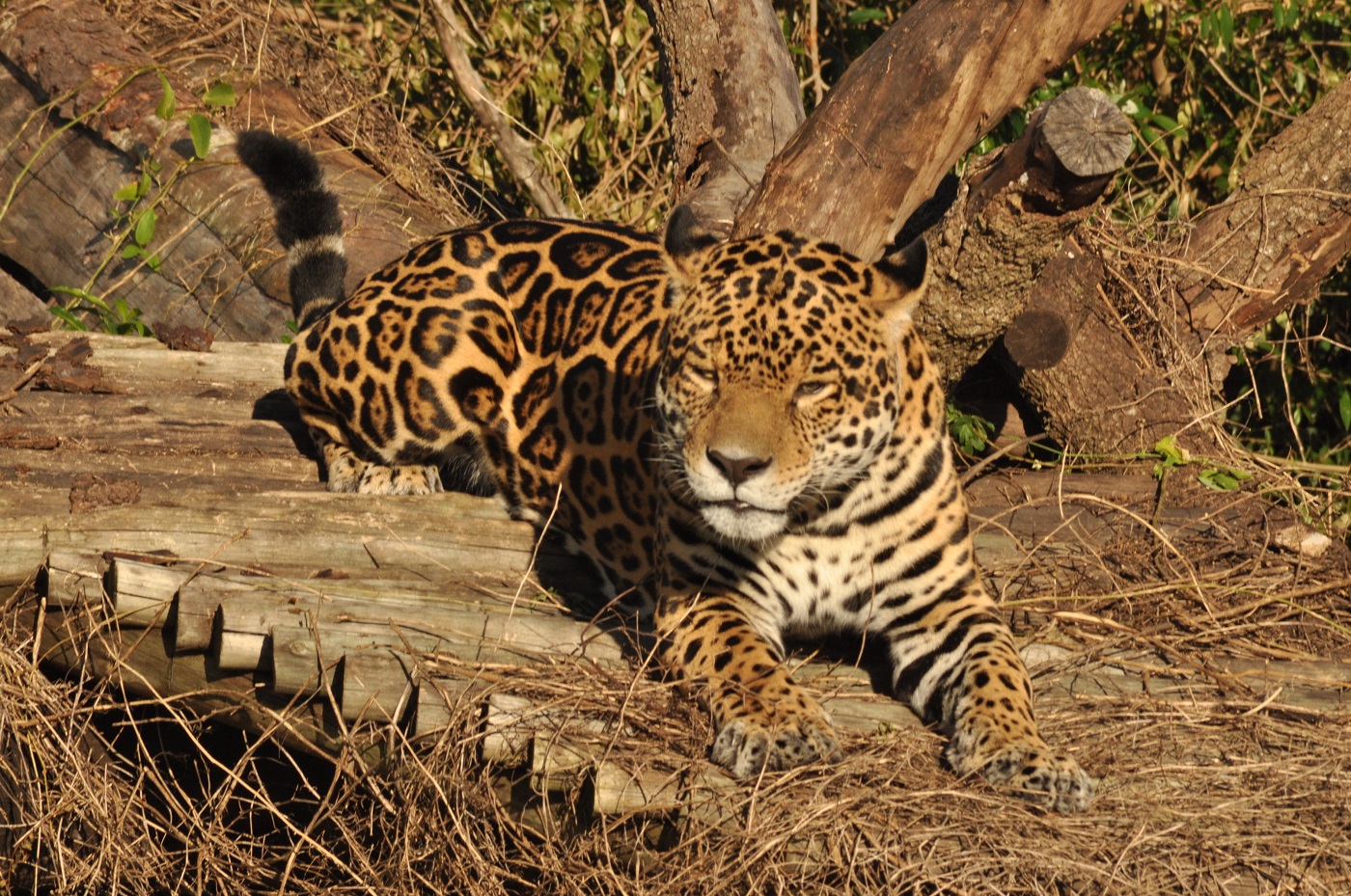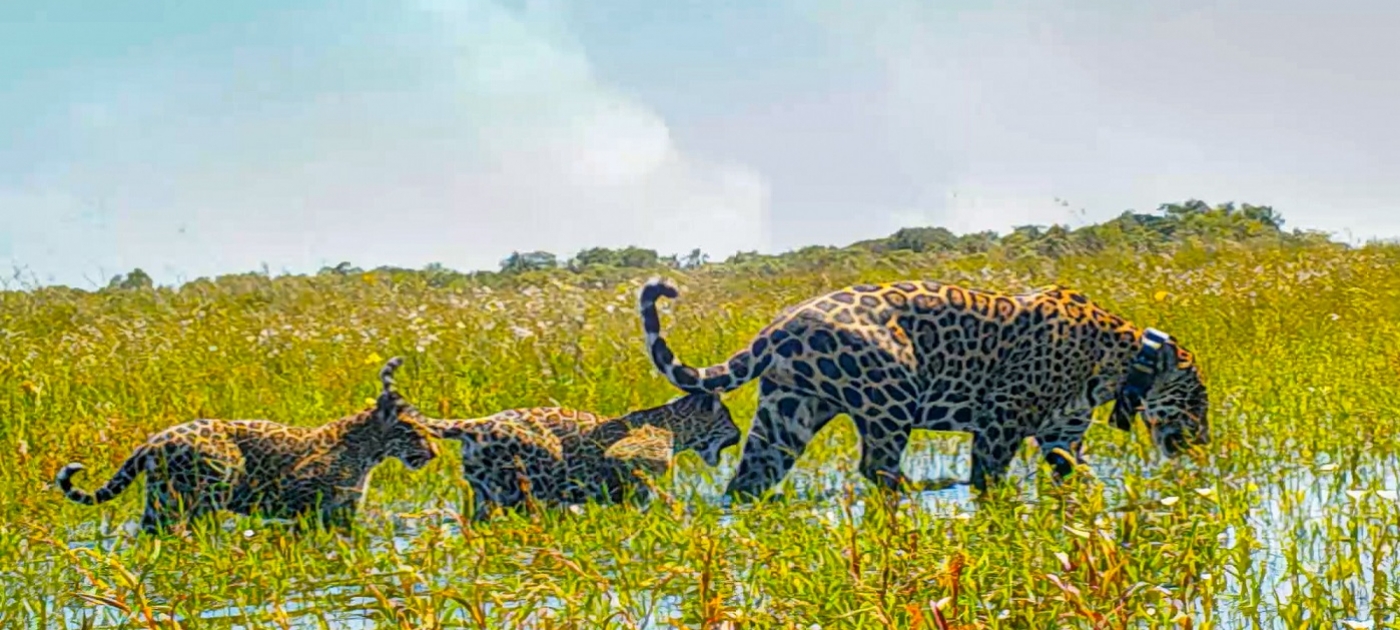
- Sustainable Planet -
- 3mins -
- 1,160 views
Jaguars return to Argentina’s Wetlands after 70 years thanks to rewilding efforts
70 years after the jaguar – the largest predator in South America – was driven to local extinction due to hunting and habitat loss, a rewilding project has seen the species return to the Iberá wetlands in Argentina.
Rewilding sees jaguars return to Argentina’s Iberá wetlands
A recent press release from the United Nations Environment Program announced that the largest predator in South America, the jaguar, has returned to the Iberá wetlands in Argentina 70 years after the species was driven to local extinction through hunting and habitat loss. — UNEP

Jaguar Reintroduction Centre, 2019. Photo by Rafael Abuin
Mariua, an adult jaguar who was rescued as an orphan cub in Brazil, and her two captive-born cubs were released into Gran Iberá Park in January 2021. They are the first of nine jaguars slated to repopulate the species in the, a 687,966 hectare protected area, which offers an abundance of wild prey for the big cats. Currently, only about 200 jaguars remain in Argentina
The release of Mariua and her two cubs marks the first reintroduction of jaguars in a place where they have gone extinct. It is part of an effort known as “rewilding” – restoring the missing species, biodiversity, and natural processes to areas affected by human activity.
“Carefully re-introducing predators such as jaguars can help restore ecosystems. Without these species, biodiversity suffers and the services that nature provides can break down – from disease mitigation and soil protection to water system regulation,” said Doreen Robinson, Chief of Wildlife at the United Nations Environment Programme (UNEP).
Source: UNEP

rewilding helps restore climate stability and planetary health
The third-largest feline on the planet, the jaguar has lost over half its historical range, leaving some populations geographically isolated and with dangerously reduced gene pools. It is an important cultural icon too: the Guarani people of northeastern Argentina value the jaguar as a symbol of strength and an essential element of the region’s identity.
“We congratulate the government of Argentina, Argentina’s National Parks and the Province of Corrientes for their commitment to rewilding this iconic species,” said Kristine Tompkins, president of Tompkins Conservation and a UNEP Patron of Protected Areas. “As we start the UN Decade on Ecosystem Restoration 2021-2030, it’s time to recognise the central role that rewilding can play in restoring climate stability and planetary health.”
Source: UNEP

Restoring the natural balance
Reintroducing top predators such as the jaguar and the giant river otter, and seed bearers like peccaries and macaws is helping the Iberá wetlands recover from hunting and decades of cattle grazing and monoculture plantations, according to Sebastian Di Martino, Director of Conservation at Rewilding Argentina, a strategic partner of Tompkins Conservation, and the organisation leading the project.
Source: UNEP


